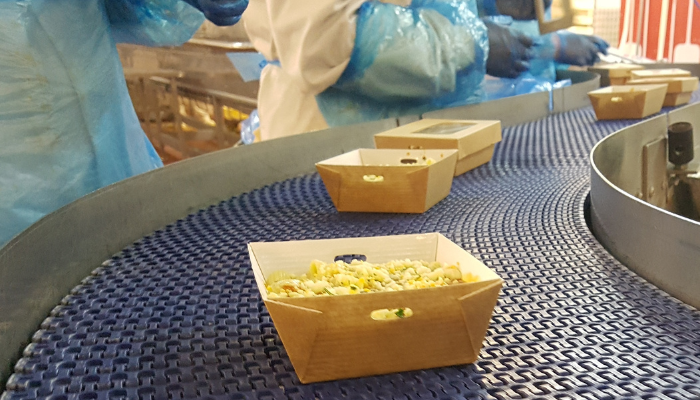Health and safety issues are the most obvious reason why compliance is so important in food manufacturing, but compliance for operational efficiency must be a consideration.
Should your product be subject to a recall an accurate and robust traceability process, you can rapidly provide information to the relevant authorities. Not only does this help minimise your legal liability, but it can also assist in reducing the severity and number of people affected by the contaminated product and keep your business from being implicated as a source of the contamination.
Food safety is everyone’s responsibility
“Traceability enables corrective actions (such as a product recall) to be implemented quickly and effectively when something goes wrong. When a potential food safety problem is identified, whether by a food business or a government agency, an effective traceability system can help isolate and prevent contaminated products from reaching consumers. Traceability allows food businesses to target the product(s) affected by a food safety problem, minimising disruption to trade and any potential public health risks. It is important for all food businesses (including retailers and importers) to be able to trace products.” – FoodStandards.gov.au
Mistakes and unexpected events happen; thankfully, these are rare in Australia. However, this does not negate the necessity of policies and processes within the industry and individual organisations needing to be strictly adhered to. From employees washing their hands to stringent cleaning and hygiene processes – checking, and knowing the source of ingredients – all need to be part of the ongoing day-to-day business operations. Every ingredient, process, supplier/manufacturer/grower, and touchpoint in the food supply chain needs to be known.
What details are required within a Food Traceability System?
An efficient, effective and legally compliant food traceability system needs to be able to track every component in your production line, at least one step forward and one step backwards from your involvement. Let’s say your business makes soup. Before you create your product, you need to know where every single ingredient comes from as well as other vital details, such as canning and packaging factory/factories that you send your soup to.
You need to know :
- All contact details for all your suppliers – exactly what they have supplied to you, and when.
- All contact details for all your customers – exactly what you have supplied to them, and when.
- All quantities, volumes, proportions, recipes and process details involved in your final product.
- All batch details of ingredients coming and going out of your place of food manufacture.
In addition, there are specific food traceability requirements for:
- seafood businesses
- dairy primary production, transport and processing businesses
- poultry processors
- egg producers and egg processors
- seed sprout processors
How a robust food traceability system can benefit your operational efficiency
So, as well as having accurate data, in the unlikely event that a product needs to be recalled, it makes excellent business sense to use this data to make smart decisions about your business.
Your business can benefit from having instant access to data on things like:
- known or expected quantities of individual ingredients
- delivery routes
- lead times between orders and deliveries (both yours and your suppliers)
- seasonal details
- known busy and quiet periods within your industry (seafood at Christmas, chocolate at Easter, pies during the AFL Football season, champagne during the Melbourne Cup Horse Racing Carnival, etc.)
When you can see this information in advance, you can become more efficient at ordering, produce less waste and have stock on hand when you need it. Plotting efficient delivery routes means reduced travelling time and customers supplied accurately and efficiently.
Access to up-to-date customer order details means that you can create the precise amount of product to meet a known demand, eliminating unnecessary overruns, wastage, time, money and effort. There are no surprises. You can plan ahead. All of this results in happy customers and increased profit and growth for your business.
At Acacia, we work closely with food and beverage manufacturers and distributors to provide the technological, business expertise and guidance needed to ensure:
- traceability
- food safety
- compliance with regulatory guidelines
- confidence throughout your food supply chain
- confidence in your business processes
- predictability within your business
- efficiency within your business
We have helped businesses overcome many issues and become more profitable. Acacia has the knowledge and experience across a range of industries to provide the most cost-effective solution for your business. If you are interested in talking through the advantages of using a cloud ERP to track food traceability, contact us and one of our consultants will be in touch soon.


